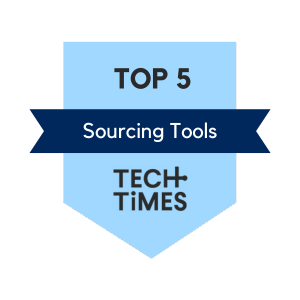Communication skills, especially writing, are important in the modern world of work. There is nothing more important than being able to write clearly and effectively regardless if it is for a report or a letter or even for constructing a presentation. Learning how to write well doesn’t solely apply to those in the media or those who want to be novelists; it is as useful to entry-level employees as it is to managers and chief executives. Now, let’s observe how to improve writing skills for career progression that will help you become more productive, and therefore more worthy of that promotion.
The Power of Good Writing in Professional and Academic Growth
Great writing transforms ideas into impact. In academics, strong writing is essential—it shapes how students express ideas and affect their performance. In the workplace, writing boosts work quality, making complex ideas clear and engaging. Skillful communication builds credibility, setting professionals apart, and enhancing trust with colleagues, supervisors, and clients.
It is helpful to hone your skills early on and getting advice from experts in this area can be a great help. Seeking guidance from the writing service PapersOwl to write my paper offers a boost. Their expert advice and examples of polished work give you a clear standard to follow, helping you grasp writing fundamentals quickly. This approach can accelerate your learning and build confidence and skill.
How to Improve Professional Writing Skills with Regular Practice
As with anything else in life, writing also needs practice to get better. Writing should be done regularly to see gradual improvement. It is encouraged that you spend between 10-15 minutes per day and write on anything that you consider interesting, this could be in the form of diary notes, summaries of recently read articles, or even short stories. Regular practice maintains preciseness and optimizes the structuring of ideas in the mind.
If you are writing at the workplace, maybe you should look at the previous reports, the document you once prepared, and the emails you once sent. By reflecting on it you can understand that you can change, it can be eradicating unnecessary use of jargon or making sentences shorter. It intends to help you write in a better and more effective manner.
Seek Feedback to Learn and Improve
Among the methods that can help to enhance your writing skills, the most effective is feedback. It gives you insight into certain aspects of writing that may not even be apparent to you. When in the process of seeking opinions then try to go for those colleagues, mentors, or friends who are attended to details.
If formal feedback is challenging to find, online writing communities and peer-review platforms are excellent resources. Additionally, consider using professional editing tools that highlight areas for improvement, offering suggestions on how to write better. Remember, constructive criticism is valuable for refining your style and clarity, helping you identify ways to improve your writing that suit your unique voice.
Expand Your Vocabulary for Clarity and Precision
A diverse vocabulary enables you to express yourself in the most accurate way which makes the text you write much more valuable. However, avoid using complex words for the sake of sophistication. Rather it is useful to be clear and pertinent with the information that you are providing in the report. It may be advisable to read books, articles, reports, and other related documents in your field so that you have an idea of how different authors use the terms.
To fully integrate them into your active word reserve, you should use them often. But kindly note that good writing is always comprehensible. Aiming for clarity over complexity makes your writing clear and gets your point across effectively across all the intended audiences.
Master Grammar and Structure for Clear Communication
Clear grammar and sentence structure are essential for professional writing. Even small errors can impact the credibility of your message. Brush up on grammar fundamentals, such as punctuation, subject-verb agreement, and sentence structure. There are many accessible grammar tools that highlight errors and suggest improvements.
Clarity should also extend to the overall structure of your writing. In business or technical writing, use headings, bullet points, and short paragraphs to break down complex information. By presenting information in a well-organized way, you make it easier for readers to follow along and retain key points. Improved grammar and structure make a significant difference in how to write better for any professional purpose.
The Benefits of Strong Writing in Career Success
Enhanced writing skills do more than just improve your communications—they open doors for career growth. Clear and confident writing increases your value as a team member. It shows that you can handle information well and convey ideas that resonate. When you communicate clearly, colleagues and supervisors see you as reliable and thoughtful, which builds trust and respect in the workplace.
Another important benefit is the ability to persuade and influence. Well-crafted writing can make reports more impactful and presentations more compelling. By improving how to get better at writing, professionals can effectively support their ideas and contribute to decision-making processes, solidifying their role as an asset to their team.
A study by the National Association of Colleges and Employers shows that 73.4% of employers seek candidates with strong writing abilities. For international students in the U.S., this can make your resume stand out. Hence, mastering writing skills leads to boosting your visibility and employability.
If you want to land a good job, studying well and completing your homework diligently is essential. Building strong academic habits helps you develop critical skills, such as effective communication and problem-solving, that are highly valued in the workplace. Consistent effort in your studies prepares you for academic success and equips you to handle professional challenges confidently. When you need extra support, online assignment help can guide you in managing your workload and honing your skills for future success. By staying committed to learning and seeking assistance when necessary, you can build a strong foundation for your career.

How Improved Writing Skills Enhance Workplace Communication
Clear communication drives success in any business. Professionals with strong writing skills thrive in teams, conveying ideas concisely and clearly. Their writing ability minimizes misunderstandings, a crucial factor in fast-paced work environments.
In professional settings, precise writing keeps everyone aligned. For instance, a short, well-crafted email saves time by reducing follow-ups, while a structured proposal aids quick, informed decisions. When people understand your points easily, you become a trusted voice. Strong writing not only boosts your credibility but also elevates your value within your team, making you a vital contributor to collective success.
Practical Tips to Improve Writing and Become a More Effective Professional
To improve your writing skills effectively, integrate these practical strategies into your daily routine:
- Read Regularly. Exposure to diverse styles helps you identify what makes writing effective and encourages you to adopt better practices.
- Edit and Revise. Edit your work to spot errors, boost arguments, and sharpen clarity. Reviewing is just as vital as writing itself.
- Use Active Voice. Active voice makes sentences sharper and more direct. For instance, “The team finished the project” reads stronger than “The project was finished by the team.”
- Take Writing Courses. Professional development courses on business or technical writing can provide tailored feedback and practical tips. Courses are a good investment in ways to improve your writing.
Conclusion
Improving your writing ability is rewarding in school and career journey. Practice, review, expansion of word-hoard, and improvement of grammatical knowledge enhance your communication. Professional writing increases your visibility at the workplace, adds to your authority, and helps set you apart at work. No matter what career you choose, mastering how to improve professional writing skills has lasting benefits. It enables you to become a better communicator, and a more respected personality with the capability to explain ideas, lead a project, and be trustworthy. Perseverance makes writing an instrument for achieving one’s aims and improving one’s performance in any occupation.
About Talentprise
Talentprise’s AI-driven matching algorithm empowers job seekers by highlighting their skills to employers, making them stand out in a competitive market. The platform uses a data-driven approach to match candidates with roles that best fit their unique skill sets, rather than relying solely on traditional qualifications. This skill-based matching process not only enhances visibility for job seekers but also increases the likelihood of finding roles where they can excel, aligning with both their abilities and career goals.
If you haven’t signed up yet, we recommend you register your free account at Talentprise and start discovering the best job matches for you.

Editorial Team
Our team is fueled by a passion for crafting valuable content that enriches the experiences of our users, customers, and visitors. We meticulously select meaningful and unbiased topics ranging from tips and guides to challenges and the latest in technology, trends, and job market insights. All curated with care and affection!








